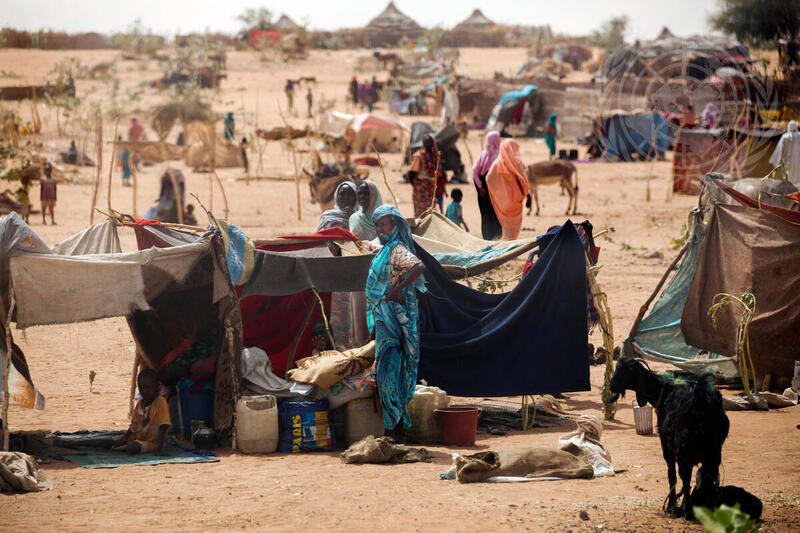The spokesperson for UN Secretary-General António Guterres on Monday said the situation in the besieged city of El Fasher in Sudan’s North Darfur State is very dire.
Stephane Dujarric, who was briefing the media in New York, said that humanitarian colleagues are warning that those who remain in El Fasher face extreme shortages of food and clean water, while markets have been repeatedly disrupted.
“Most water infrastructure in the area has either been destroyed or rendered non-functional due to lack of maintenance or fuel to run generators,” he said. “A recent assessment by our humanitarian partners, together with local authorities, found that 38 percent of children under the age of 5 in El Fasher are suffering from acute malnutrition, including 11 percent with severe acute malnutrition.”
“The breakdown of water and sanitation services, combined with low vaccination coverage, has sharply increased the risk of disease outbreaks,” Dujarric added.
He revealed that UN Under-Secretary-General for Humanitarian Affairs, Tom Fletcher, has held a series of calls last week for an urgent humanitarian pause for the city of El Fasher.
“As you well know, North Darfur has been the epicentre of clashes since the onset of Sudan’s conflict, now more than two years ago. Just in April and May of this year, nearly half a million people were displaced from El Fasher town and Zamzam camp, where famine conditions have been confirmed since last August,” he stated. “About three-quarters of the camp’s population fled to locations across Tawila, where we and our partners have scaled up the much-needed humanitarian assistance.”
“And just to note that since April 2023, an estimated 780,000 human beings have been displaced from El Fasher town and the nearby Zamzam displacement camp, that’s what the International Organization for Migration has said,” Dujarric added.
The spokesperson also said that elsewhere in Darfur, cholera is on the rise and that last week, humanitarian partners reported more than 300 suspected cases, including more than two dozen deaths, in South Darfur state alone.
“So far this year, more than 32,000 suspected cases have been reported across Sudan by local authorities. Conflict and collapsing infrastructure continue to drive the spread of the disease and impede response efforts. More resources are urgently needed to curb the outbreak,” he said. “Humanitarian needs continue to far outpace available resources. The 2025 humanitarian response plan, seeking $4.2 billion to help some 21 million of the most vulnerable people across Sudan, is just over 21 per cent funded, with $896 million in the bank to date.”
The UN called on all parties to protect civilians and enable safe and sustained humanitarian access.
“We also urge donors to step up in their efforts. Those who have pledged to turn those pledges into cash and those who have not pledged to just give us cash directly,” Dujarric appealed. “Without additional and timely funding, the lives of millions of people in Sudan will continue to hang in a very precarious balance.”




